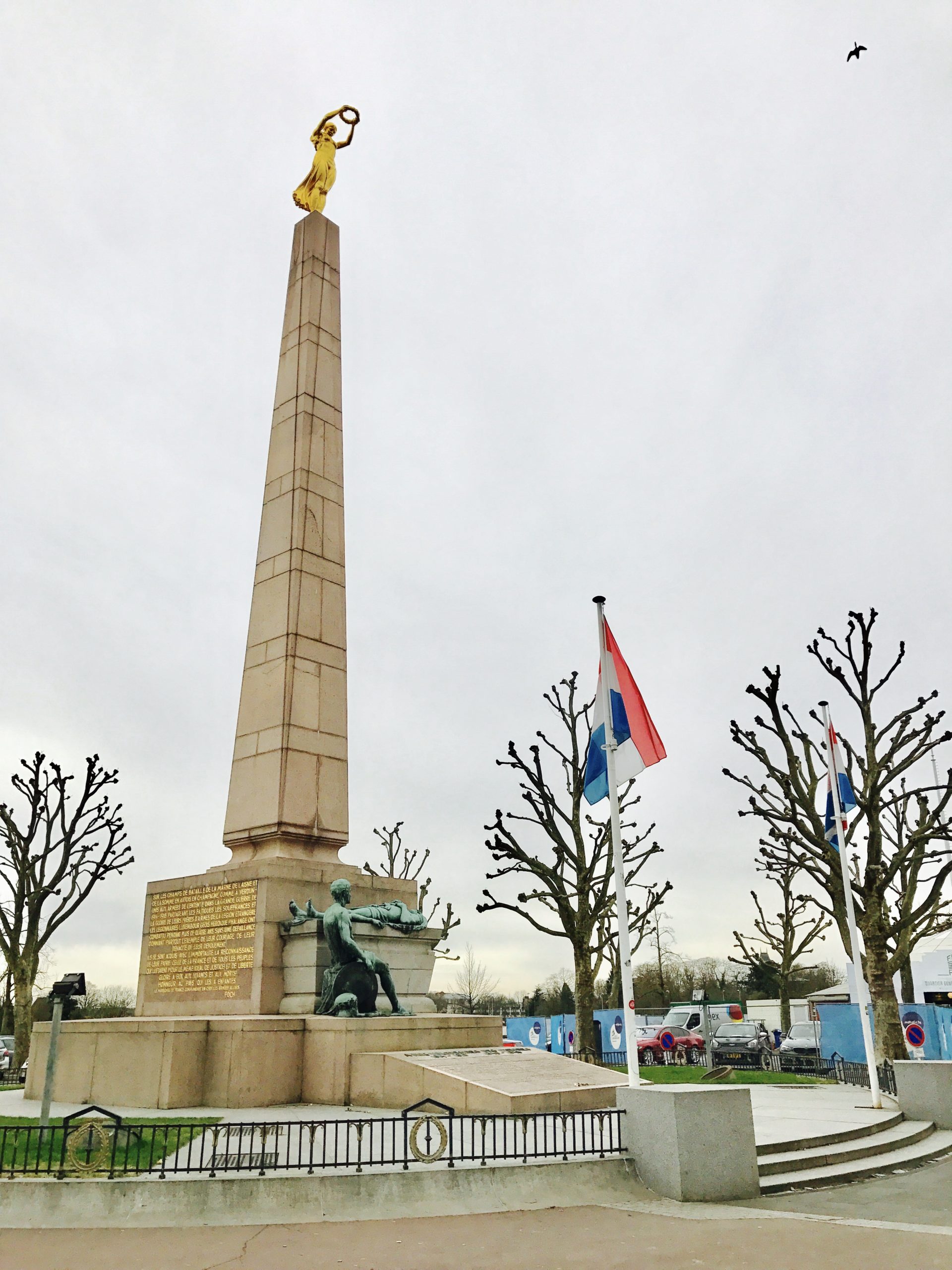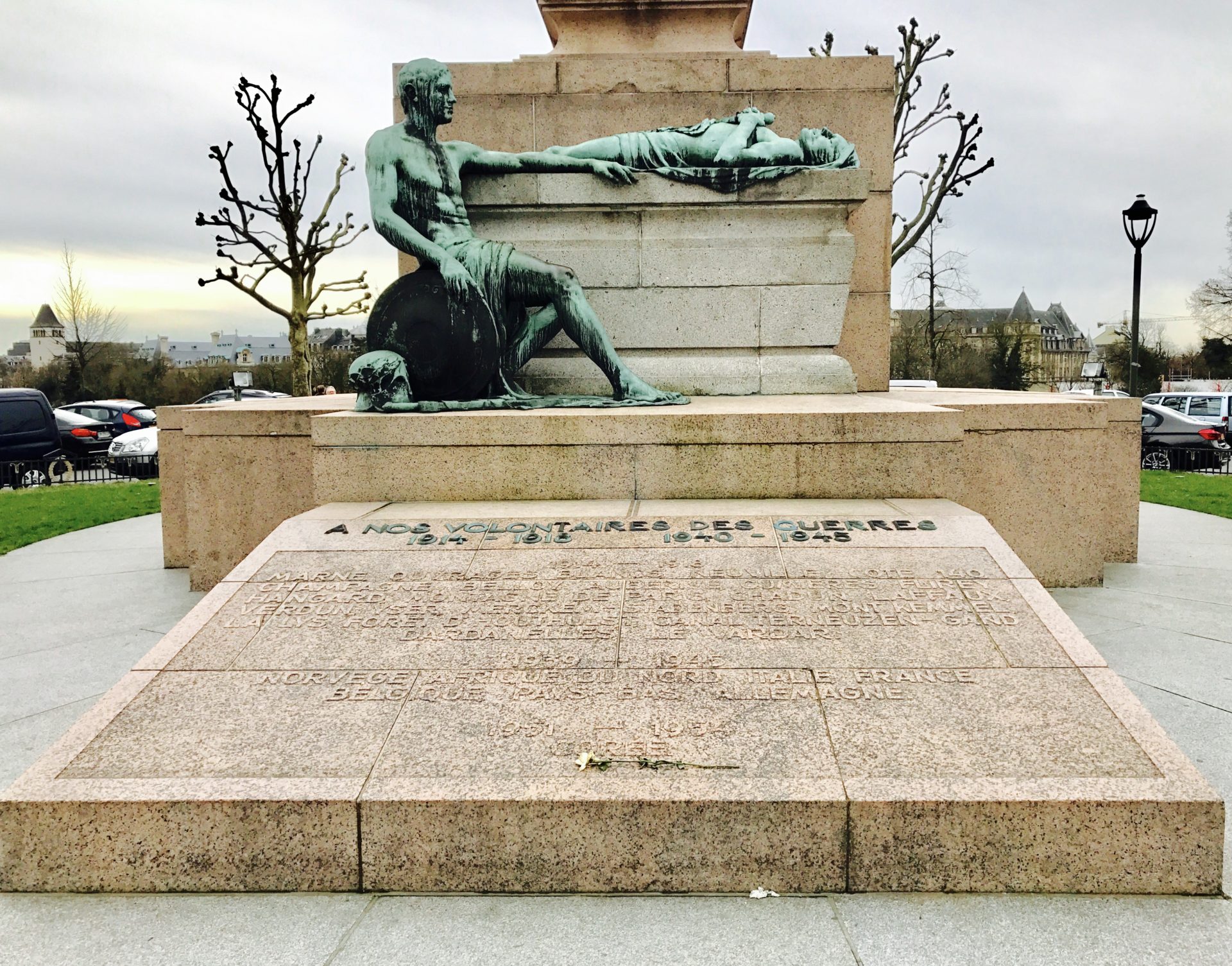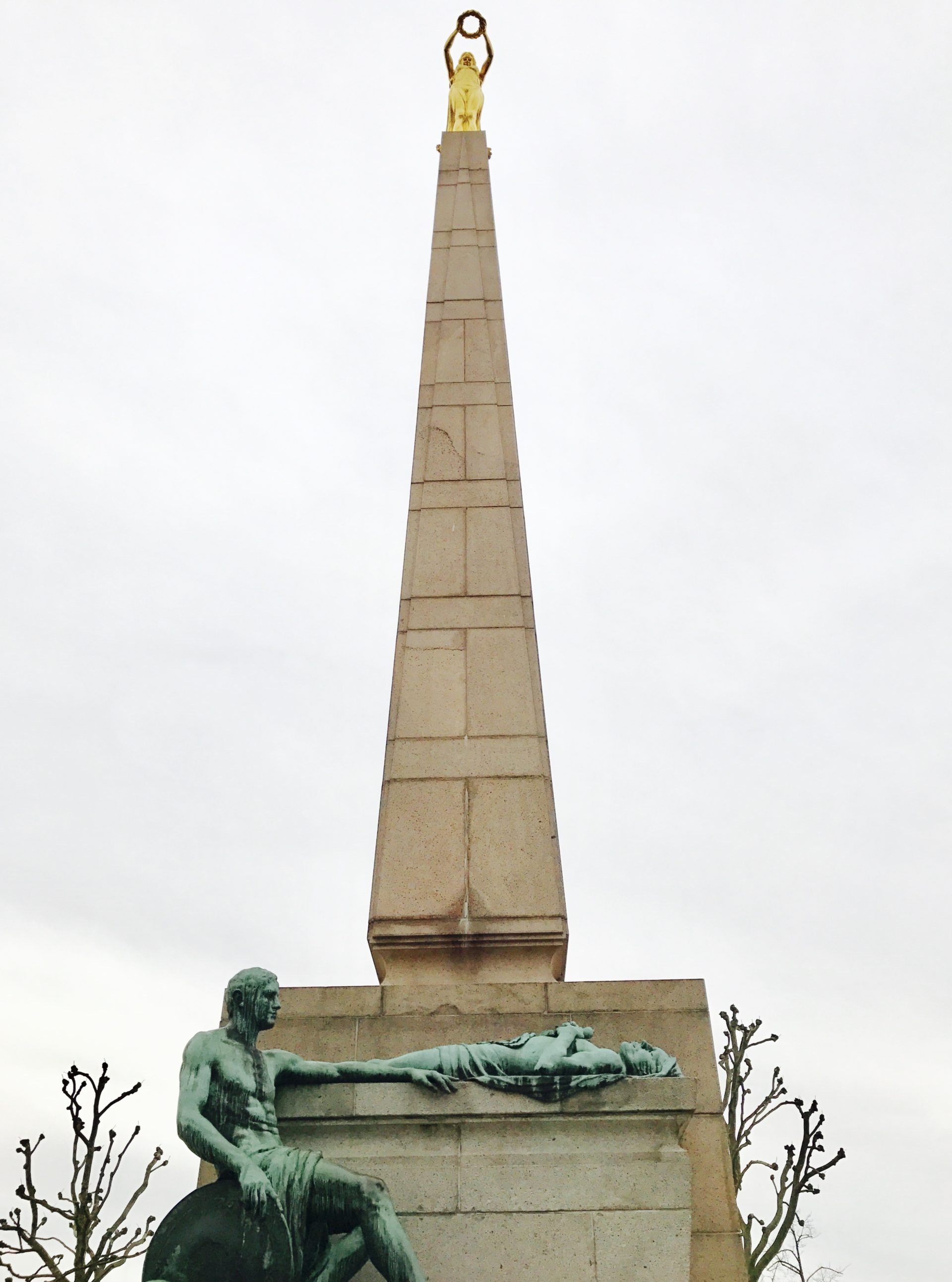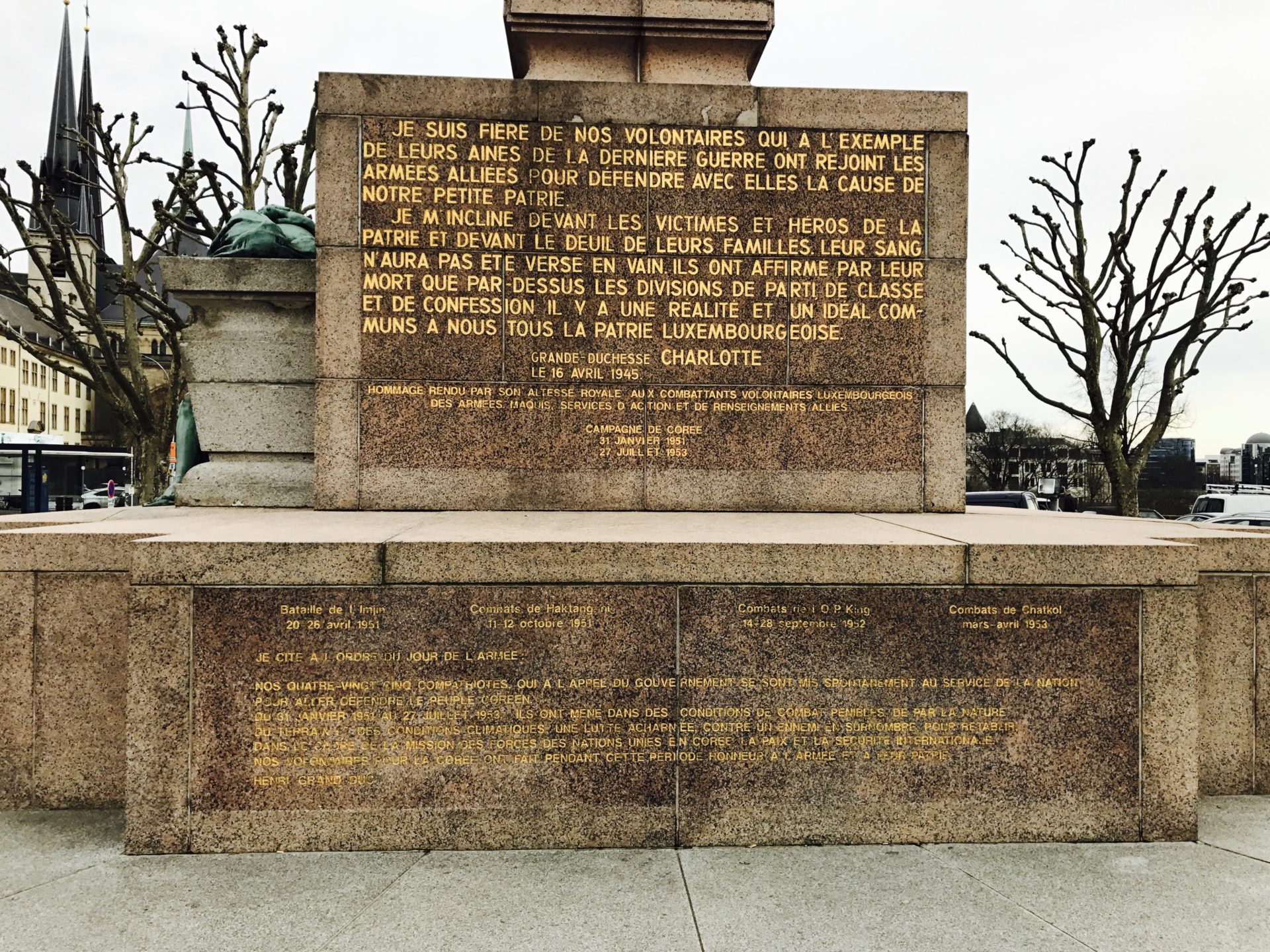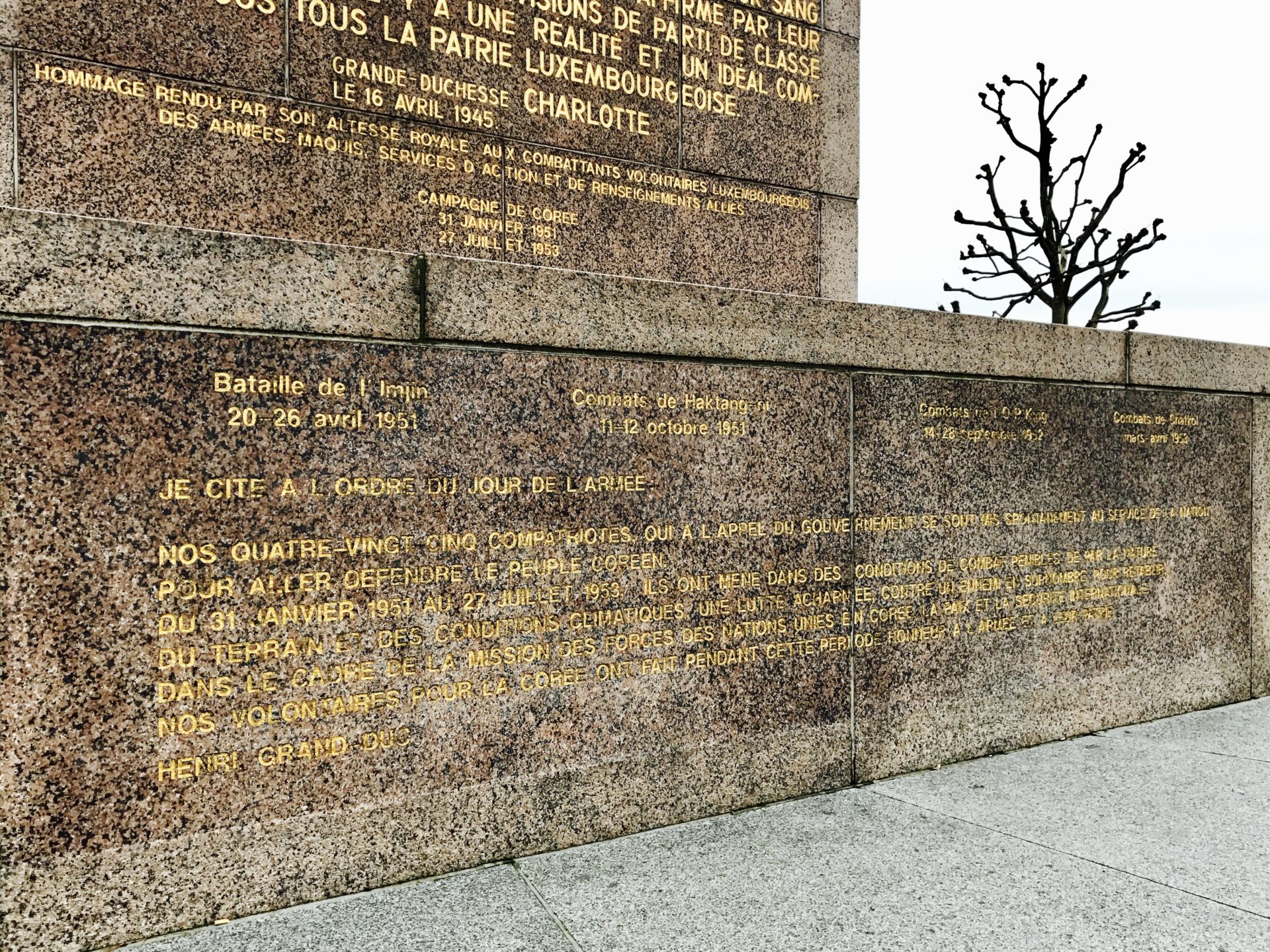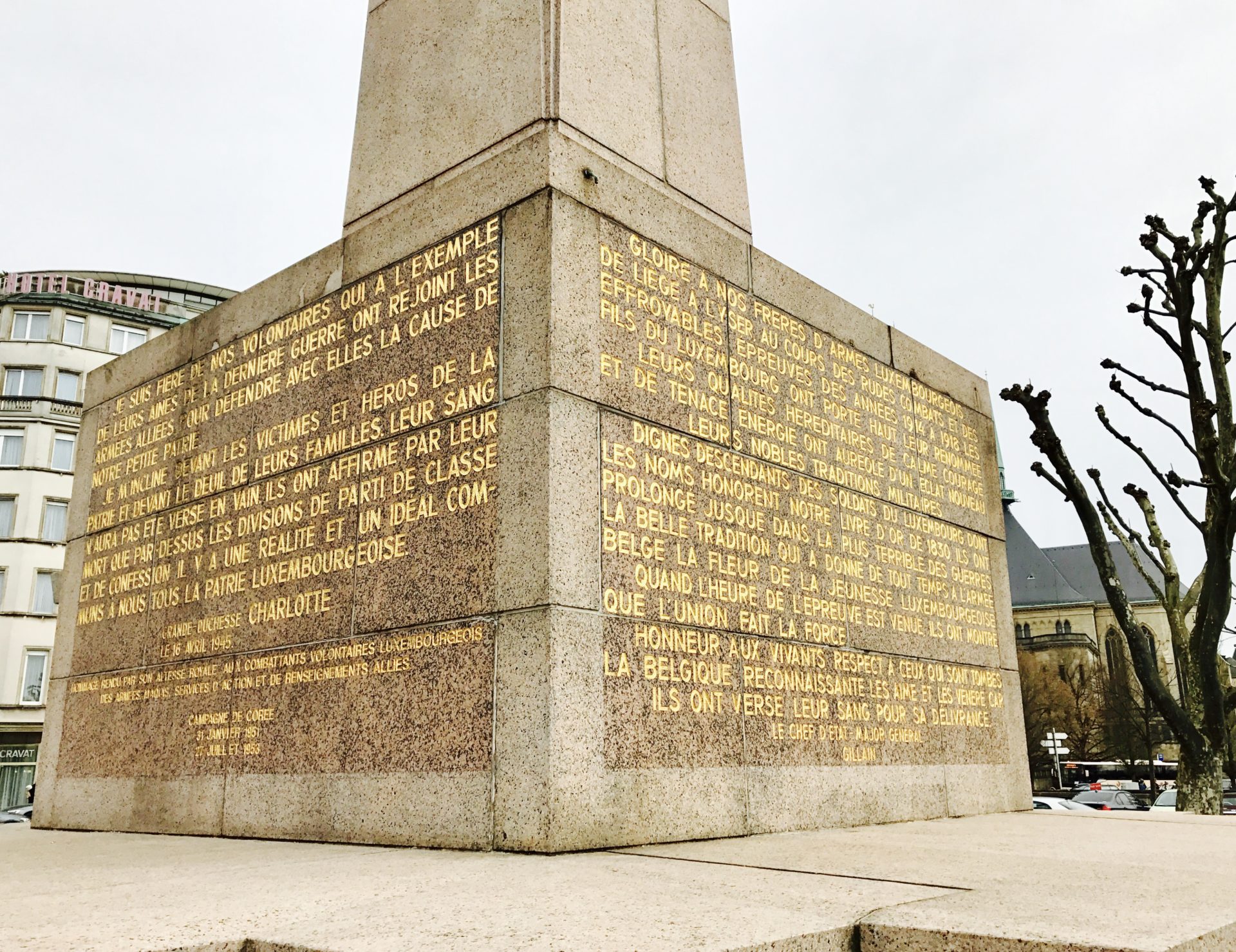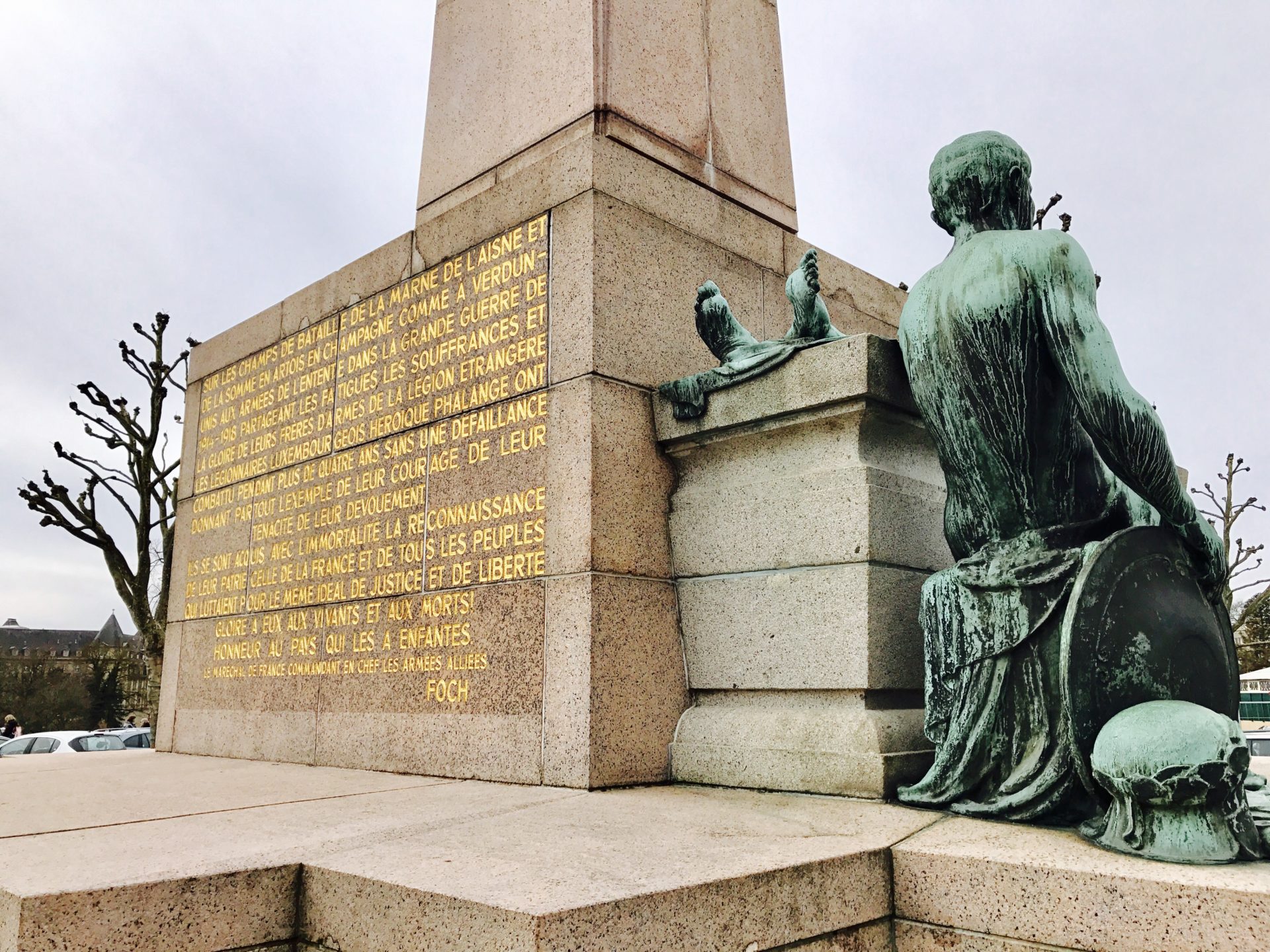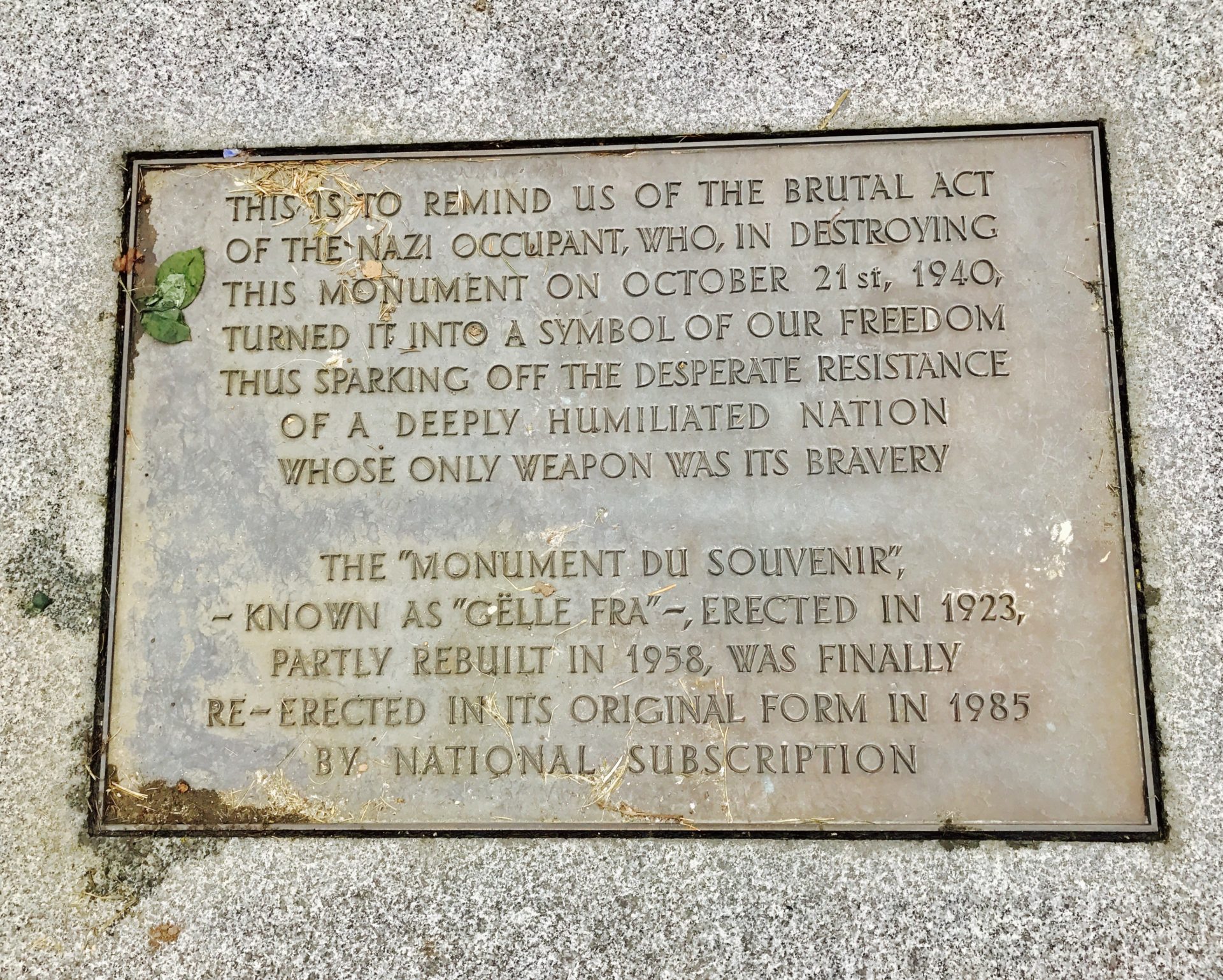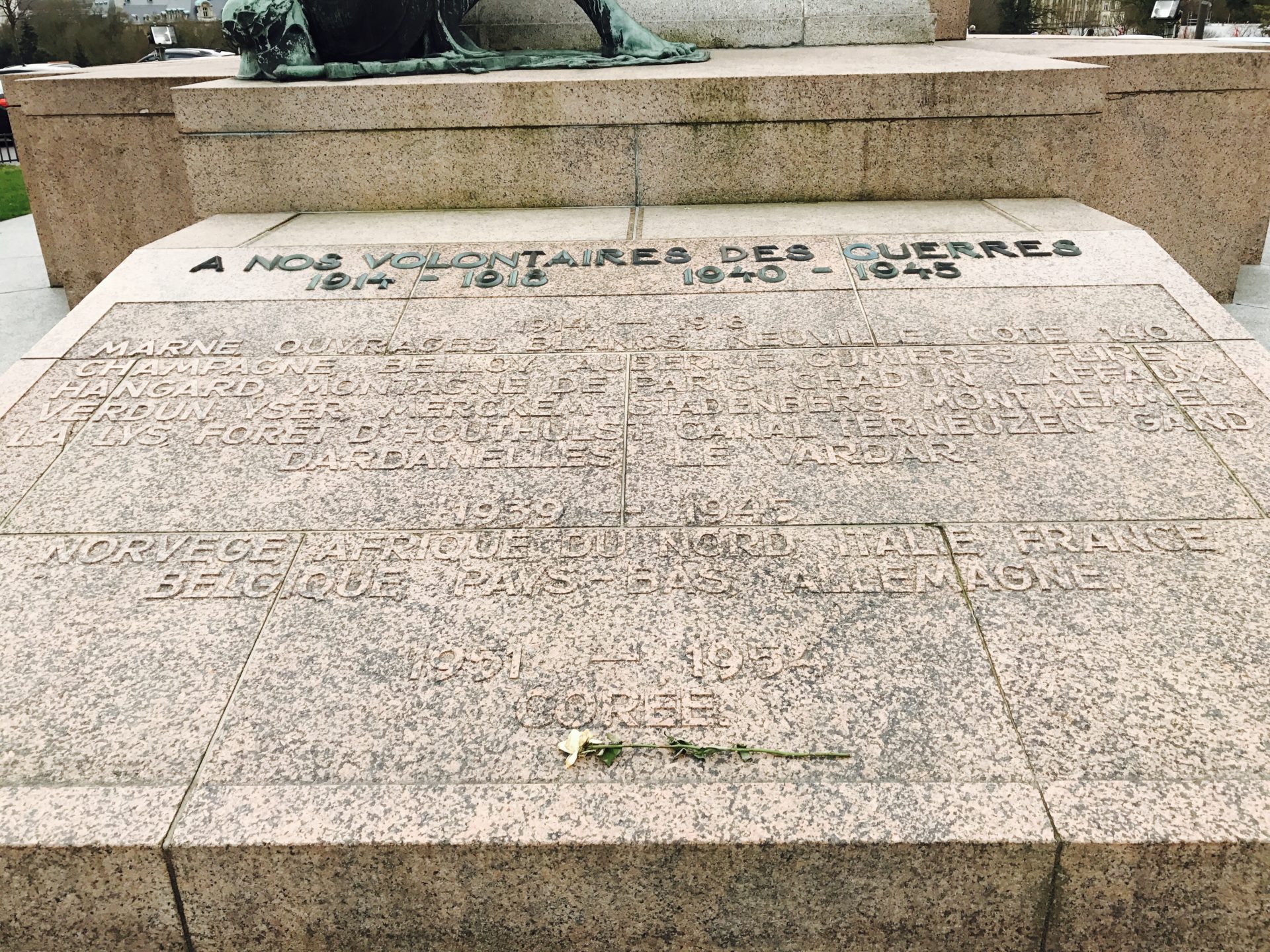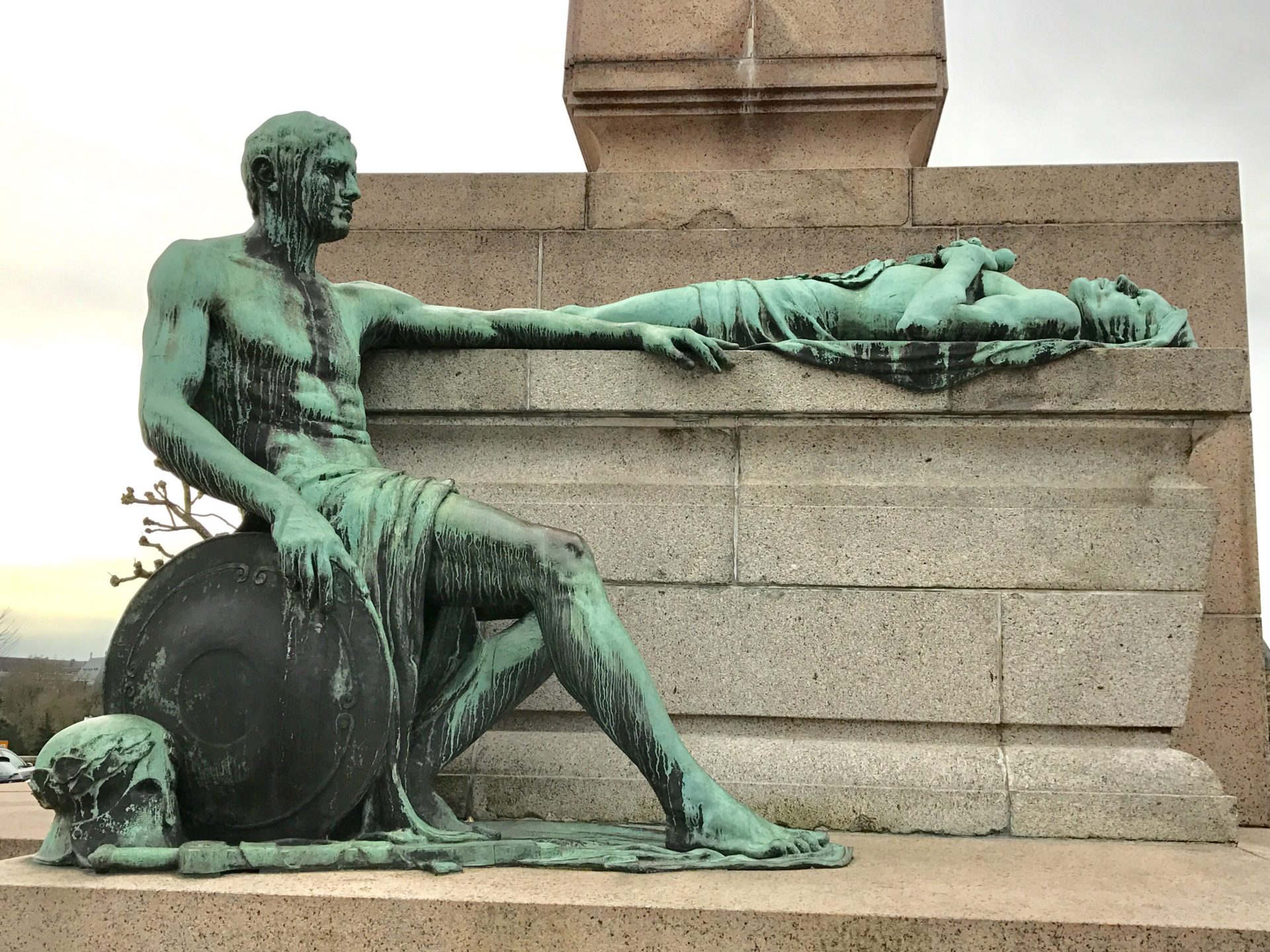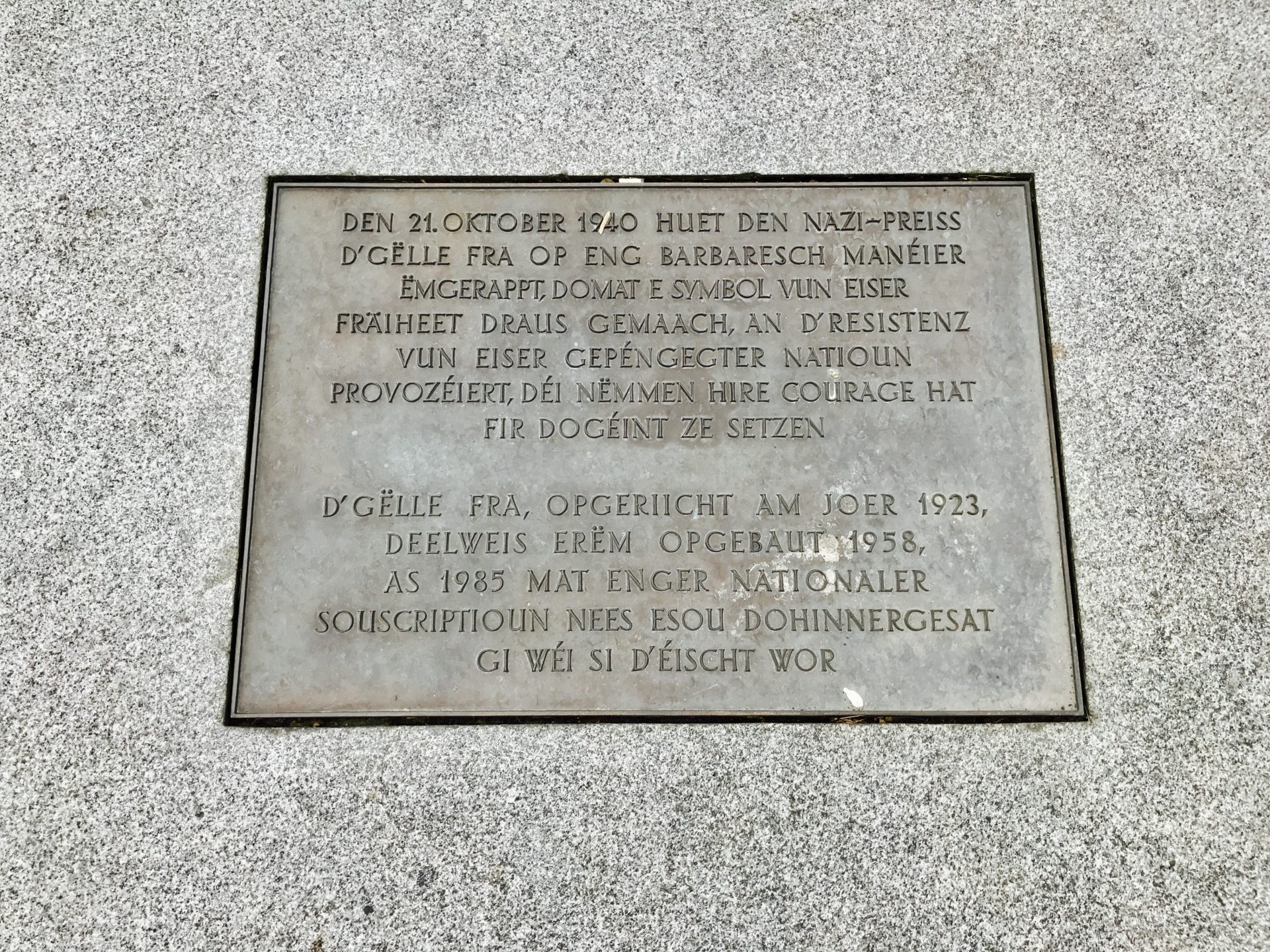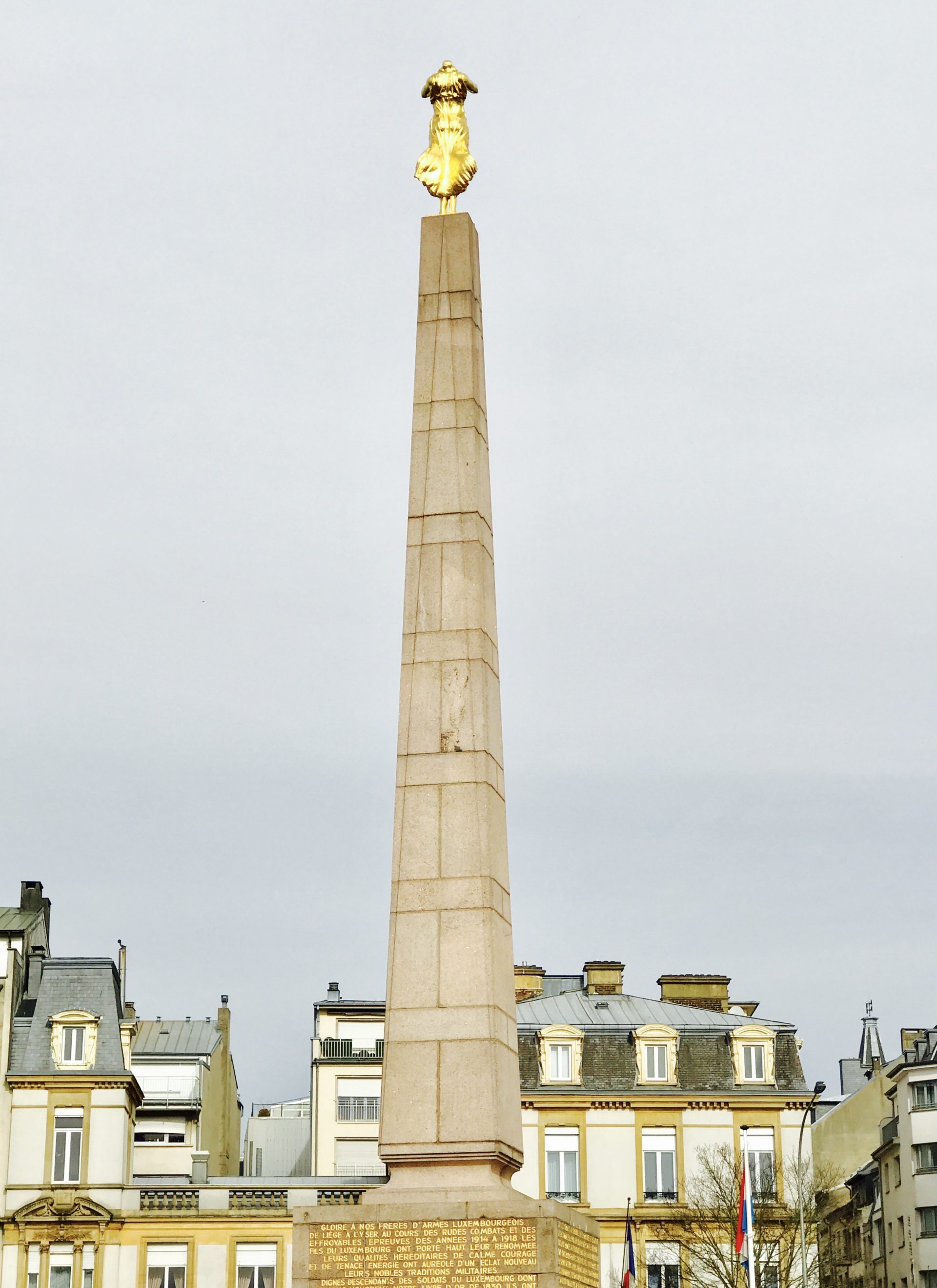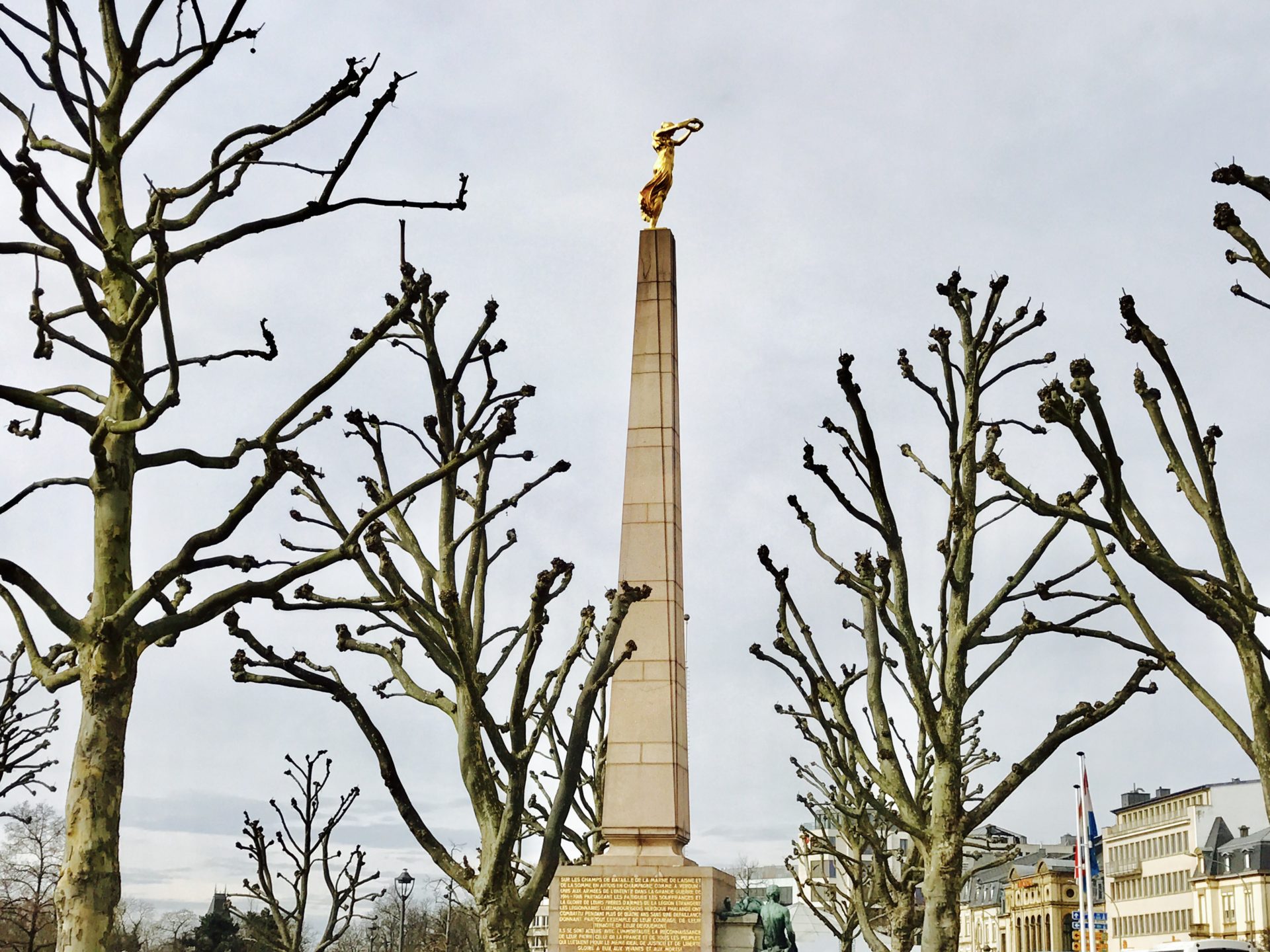Veteran Stories
>> My name is Joseph Wagner. I was during [INAUDIBLE] tough years in the Luxembourg Army, and one part of this occupation from back in the Korean War. I engaged in 1950, and I was sent to Korea with the Luxembourg detachment. All the people, they were volunteers. They had all volunteered, and we were attached to a Belgian battalion. We couldn’t afford to have a big force, to have all the logistical facilities, unit command, but we were all the time with Belgians attached to a Belgian company. And so we went, before the war, sent to a Belgian training camp. We did all the training which was useful for fight, for a soldier to be engaged in a war, and after that, we were sent to Korea on a Belgian boat. It was called the Kamina. We went on a Belgian boat, the Kamina, which was not very comfortable. We had very hard time during 6 weeks, being from one sea to the other, and we arrived. We started on the 13th of December, and we arrived in Korea on the 31st of January. It was a long way, yeah? So then we were received in a reception center. We went on training again, what we found out by contact foreign units who had already fought in the Korean War because we came in. Then the Chinese were already in the war. They started in November, and we arrived on the 31st January, and what I feel, we never saw a North Korean soldier. We were all the time engaged with Chinese because during the landing in Incheon, all the Korean units, they were cut off from their bases, and they had no contact from their bases anymore. And, well, our first mission was to fight them, and we had our first mission, was to control the communications of South Korea, and we were stationed in week one. Week one, that was our first mission. We were all the time patrolling the region to be sure that those people would not go making trouble in this area. And after that, we joined the third American division, and we were taken in offensive action that was south of Seoul. As I said, we had to … First crossing was the Han River, and then we went up with American units, with the third division, up to the 38th parallel. And from there, we trenched, our attachment. Then we were attached, the Belgian battalion was attached to the 29th British brigade, commanded by General Brodie. General Brodie, he was a jungle fighter, and when they sent him to Korea, there were only mountains and stones, no jungle at all. And, well, we were attached to this unit, to the 29th brigade, and then came the backlogged [INAUDIBLE] on the 23rd of April, and I was sent out on a patrol from the 12th to the 13th of April, and the Chinese, they were nowhere. Nobody knew where they were, because we had so many patrols during the night. Every unit had to send out patrols, and when I was sent out, I had … My mission was to see if a certain position was occupied, and when I came to this position, the position was occupied. We have a firefight with the Chinese occupation, and then we pulled out. We pulled out. We had one wounded, not by a bullet, but he was … He fell down on a certain position where he hit barbed wire or some kind of defense object. So we came back to our base, and I was called to the brigade’s operation officer, to the [INAUDIBLE] of the brigade, and then I told my story, that we were having contact with this position where we were both sent, and, well, that was very valuable information because 10 days after that, the war started. They started. The Luxembourg detachment was … North of the Imjin River was the other unit, the Luxembourg company, the Luxembourg … The Belgian battalion was north of the Imjin River, and all the other units from the brigade, the [INAUDIBLE], the oilers, the rifles, the [INAUDIBLE], they were south of Imjin River. And then when they attack, well, we had to, first of all, to hurt the position, 23 hours before we could move back, and we were already surrounded by the Chinese, and we were liberated, the help by air strike and by tank patrols. They cut the way from the Chinese, and so we had the chance to pull out, and then we went back. We went back, and during our retreat, we had, from time to time, what I call retreating operations. You had to occupy a position. You had to pull out. You had to occupy another position to make the aggressor that came from time to time on the resistance. And then we kind of came back to, well, south of Seoul. I don’t know the town anymore, and then we were on reserve of the brigade because the brigade was not operative anymore because they had already lost so many. They had lost one battalion. They lost the battalion, was wiped out on their position on the Imjin, and so the brigade was what we call in reserve. And after that, we were patrolling, all the time, the Imjin River, and that is where we had two wounded, two wounded on the night patrol, and we … Because the Chinese had all the time infiltrators across the Imjin River, and they were patrolling the whole region every night, every night. So we had two wounded, and they were evacuated to Japan, and when they had been, the treatment was up, they came back to our position. They came back to our position again. And, well, from there, we came also on a very comfortable situation because we were also reserve of the brigade. And from there, we stayed on the position making patrols on the level of the battalion, what they called a sweep, a coup de ballet, a sweep, to find out where the Chinese were because the Chinese, after our offensive action, they had been thrown out. They had been thrown out. And then of the first of July, we had very big operation, the Luxembourgers with Belgian battalion, Belgian company, and that was, we had to occupy the bridge head across the Imjin River. The bridge head, we had to make our position and when we moved up, we crossed by boat. The Imjin River was very swollen. It was very high, and we crossed by boat, and the British engineer troops, they took us along. And when we came on the other side, there were some people left on the village. They said, “Well, they are 800 men who have just left the position we occupied,” where we should occupy our bridge head. And after that, after we were occupied, we were attacked by enemy fire, by Chinese fire. They were occupied about 800 to 1000 meters in front of us, and we were taken in by fire. They attacked us by fire, and, well, as I was on the side, I had all the time, the possibility, the facility to call for artillery fire, and I knew exactly where they were, and I called artillery fire on their positions, but they were very clever soldiers. They were very, very successful and very skillful. And then a Belgian company was moved up to find out where the Chinese were located, and when they came up to the position, they were attacked by the Chinese, and they had to pull out. And we were on the favorable position to have to help them by protective fire, and all our men, all our, well, platoons started to give supporting fire to the Belgian company, and the company commander, he used to say all the time, “If I would not have had Luxembourg platoon on the 1st of July, my company was wiped out,” and that was a very good compliment to me and to my people. So we had to pull out again. We were the last one section after the other, and I was with the last section, and I was in the last boat being taken over in the Imjin River on the other side. And then the whole battalion, and some supporting elements of the brigade, they all were shooting to protect our reply. So when we were on the other side, well, we were safe again. We were safe because the Chinese, they were not … They had no means to follow, they had no means to go further than what they have done already because the Belgians, they had three or four wounded and so many hurt, so many hit and so many wounded. And then we went up to our position again from where we were located, and then on the … When did we came back? On the beginning of September, we were relieved from our position, and because the idea was to take the first battalion, we were sent in Korea, the Belgian battalion, to be sent home again, and we arrived in Rotterdam on the 2nd of October, 1951, and then we were sent back home again. But there was one more very important incident. Before we were liberated from the position, we had to take part in an offensive action that was what we call a diverging, and we were attacking., We were attacking a certain position, on a certain position, the Chinese. But on another sector, in the middle sector of the whole line, there was a very big attack moving on, pushing the Chinese further to the north. And during the night of … I forget. It was in August, the 7th or the 9th August, we were attacked again during the night by the Chinese, and we were … They were so close to our position that I was afraid that we would not have enough ammunition to fight them for a certain time, but that didn’t happen. The Chinese, they moved back again. We drew them back, and then we came back [INAUDIBLE] Imjin River and then we were called to what we call, to a position where we can have a rest, a resting position, and then we moved up. We handed up all our equipment, and then we were taken to Incheon on the boat, the General McRae, and, I guess, that must be in September. Yes, because we were 1 month on the way up to Rotterdam, and that was the end of the first detachment. We were sent back to Luxembourg, and then the people, they were sent on leave, and I went home to my parents, and that was as far as I had done as a Luxembourg commander and as a Luxembourg soldier during this war.
>> So how many Luxembourgers fought in the war?
>> How many Luxembourgers in the Korean war? At the whole, we were the second detachment that was created, and that was … We had 85 people in the Korean War. Eighty-five Luxembourgers were served in the war, and we have two wounded, and about 52 … No, 32 killed, and about 15 to 14 wounded. That was, for me, as a young soldier, a young officer, was a good experience. A good experience not only to fight another aggressor, but it was also very good experience how to handle people, how to handle people in a critical situations because I had to have confidence in my people, and they had to have confidence in me. I was a leader, and we have never had an incident or trouble that somebody was … I was very glad, and very glad. I had confidence in my people, and that was also a very big satisfaction for me when I came back. I had my people. Some had re-engaged. Six people had re-engaged, but where the other people, they went back to Luxembourg with me on the second of October.
>> You came back, and you volunteered. You said the 85 volunteered.
>> Yeah.
>> Including you, why do you think they volunteered?
>> All the other? Well, some people, they didn’t have a job. Other, they had maybe an adventurous spirit in mind because the adventure was all the time in the air, you can say, because people, well, they are excited, but most of those people, I feel they wanted to be soldier, and I don’t know exactly what were their feelings. If they were in to fight an aggressor and to help the Korean nation, I don’t know. My feeling was that I was engaged to help the Korean nation because they were in a very critical situation, and I was just coming back from school, so I said to myself, “Well, this is a very good occasion, first of all, to find out what is going on as a leader in a war.” And my second motivation was to help the Korean people because what we had heard, that the Korean people, the poor farmers, that they had been attacked by a very well-equipped aggressor. Yes, that was … When I started, I was at school. I didn’t know anything about Korea. I didn’t know where this country was, and I didn’t know what was going on, and finally, we found out that there was a separation between South and North which was because the first President, Syngman Rhee, he made elections in ’48, and when the people of the North, they had no rights because they were already under the domination, under the rule of Nam Il-Sung. Nam Il-Sung was the first president.
>> Premier Sung.
>> They did not take part in this elections, and Syngman Rhee had already in mind that he would be the president of the whole Korea. And, well, it came in another way, and, well, they were really surprised, but the American, I mean, information of this at G2, in this area, they should have known that something is coming up because if you start an aggression, you have to assemble so many units and I don’t know. Well, they had no chance. There were not many American units to block them, and so that was the reason why they had a chance to go so far to presume. They … Well, it was not far away that they had thrown the whole United States … not the United States, the United Nation Army in the sea again. And that was … That would have been a very big operation to have ground again in South Korea, and fortunately, in this few place on the Naktong, fortunately they stopped. They blocked the Chinese offensive, Chinese they were, and that was very … the biggest luck which could happen, and then after the Imjin, the Imjin landing, the Imjin landing by MacArthur where he cut out all the bases, all the units who were cut out, and then they broke out. General Walker, he was commander of the 8th Army. He broke out and then to join the forces who had made the landing, the landing that was at the height of Seoul, because from Imjin, they went in direction of Seoul, and Walker, he broke out in the same way because he had not very much resistance because all the North Korea, they were blocked. They were all cut out, cut up. And so they came together, and then from there on, from this part on, it was the United Nation forces. They were, we say, so many nations had engaged themselves, and at the end, we had 21 foreign nations fighting the Chinese in the Korean War, and that was the lucky part, what I have found, and it was very done well. Came the part when MacArthur was relieved from Ridgway …
>> Truman.
>> Huh?
>> President Truman.
>> No. No, MacArthur, he was liberated from his post or sent out or sent back by Truman, and he was replaced by Ridgway, and from there, from that point on, Ridgway was our operative commander, and he was a very good man. He made many punishment operations, what he called, when the Chinese, when we had attacked or found out some posts that they had taken back so many soldiers of the United Nations. Then he made a punitive operation. He said, “Now we will punish them,” and then he attacked on certain points. Well, I could not say much more about …
>> You must be very proud of …
>> I was.
>> … the Luxembourgers’ contributions.
>> Yes, I was. I was really proud, and I was also, not only to myself that I succeeded in my, in the whole field. I was very proud to have done a very human mission, and I was very glad that when the South Korean War was over, and the people could recover, and I was very much surprised what they have done during the last 60 years. I was so much surprised every time when I was in Korea. I was there already eight times, six or eight times, and I was all the time surprised for also about the kindness of your people. They are so kind and so grateful, very. That’s what is also, when I come back, all the time, they say, “Oh, if you would not be our liberators, if you would not come to Korea, what would happen to us?” And so that was what … And in the museums, Luxembourg is very well represented. In the museums in Korea, Luxembourg is very well represented. And then when after that when we followed, when we are back, we followed that very closely, and we were glad to hear that they have had finally come to agreement to cease fire. Not to … at peace because they are still in war. North Korea and South Korea, they are still in war, and I wonder about the motivation of the South Korean units. They are very good soldiers. They are very, very … Oh, I can’t imagine that the North Koreans, they would not come along far if they were there to attack, but there is one thing. I was in one of those tunnels. They had created eight tunnels under the Imjin battle, under the Imjin River. I was in one of those tunnels, and when they would have attacked again, they were not ready, but they could have attacked it with so many divisions across one tunnel. Well, that would be, what we call the most biggest evil which could have happened to the South Koreans because they found only out that there were tunnels. There were tunnels inside. They could not … They found out that the soldier, he was so vigilant, and he said he heard some noise, and went, “What is that?” And then they looked, after that, in making research through the earth, and then they found a [FOREIGN LANGUAGE], we called it. How do you call that?
>> An empty [INAUDIBLE].
>> An empty hole. And they investigated, and they started to look after that, and then they found the tunnels. That was also very lucky. Oh, because that was … No, they had no good things in mind, and luckily, I was very, very happy that Korea had developed in this manner. Good army, very well organized in the industrial field. Oh, I was very lucky to hear that Korea had recovered.
>> Well, like you said, we are all very grateful to you and your fellow Luxembourgers for your service.
>> Thank you.
>> Thank you.
[FOREIGN LANGUAGE]
>> My name is Krylov Ailey.
[FOREIGN LANGUAGE]
>> In Korea, I was called Lee.
[FOREIGN LANGUAGE]
>> So I am born the 23rd of July, 1931, in [FOREIGN LANGUAGE].
[FOREIGN LANGUAGE]
>> So I went into the Army the 8th of June, 1949.
[FOREIGN LANGUAGE]
>> So 1950 was the first call for volunteers to go into Korea.
[FOREIGN LANGUAGE]
>> He only went with the second detachment.
[FOREIGN LANGUAGE]
>> So this was going on through May [FOREIGN LANGUAGE] 1950?
>> Fifty-two.
>> 1952 until June ’52 where you were in Luxembourg and in Belgium.
>> Oui, mm-hmm.
>> Okay.
>> Yeah.
[FOREIGN LANGUAGE]
>> And then they went to Belgium.
[FOREIGN LANGUAGE]
>> So they finished their instructions there.
[FOREIGN LANGUAGE]
>> Meersburg.
>> To Meersburg.
[FOREIGN LANGUAGE]
>> So in March in ’52, they went by airplane from the airport, Meersburg.
>> Meersburg.
>> Meersburg, where?
[FOREIGN LANGUAGE]
>> And then first to the Azoren Islands.
>> And then Newfoundland.
>> Then Newfoundland.
>> Springfield.
>> Springfield, yeah.
>> Oklahoma.
>> Oklahoma.
>> San Francisco.
>> San Francisco.
>> Hawaii.
>> Hawaii.
[FOREIGN LANGUAGE]
>> [FOREIGN LANGUAGE] yeah.
>> And then Tokyo.
>> And then Tokyo.
>> And then from Tokyo, I was [FOREIGN LANGUAGE].
[FOREIGN LANGUAGE]
>> Then they went from Tokyo by boat to the south of Japan, Sasebo.
>> Yeah.
[FOREIGN LANGUAGE]
>> Yeah. Okay. Yeah.
[FOREIGN LANGUAGE]
>> Okay.
[FOREIGN LANGUAGE]
>> So they went to Korea, and then for 2 months, they were trained.
>> [FOREIGN LANGUAGE]. Yeah. Yeah.
>> In training, and then … [FOREIGN LANGUAGE].
[FOREIGN LANGUAGE]
>> And then the first time they went to the front.
[FOREIGN LANGUAGE]
>> So then they went …
[FOREIGN LANGUAGE]
>> Then they went second time to the front in September of ’52, 1952.
>> Yeah.
[FOREIGN LANGUAGE]
>> And they went to the first post, not far away, about 1 kilometer away from the Chinese.
[FOREIGN LANGUAGE]
>> And then they had two periods there …
[FOREIGN LANGUAGE]
>> … during the whole period that they were there.
[FOREIGN LANGUAGE]
>> You could not bring your head high because all the time it was shooted.
>> Yeah.
[FOREIGN LANGUAGE]
>> And then they went back, and they went again to the front.
[FOREIGN LANGUAGE]
>> They were the day when there was rain period.
[FOREIGN LANGUAGE]
>> And they were 3 weeks in the front, and they were totally wet from the morning to the evening.
[FOREIGN LANGUAGE]
>> So that’s the period, rain period, for the rice fields.
>> Yeah.
[FOREIGN LANGUAGE]
>> Excuse me, please.
[FOREIGN LANGUAGE]
>> So they went back from the front.
[FOREIGN LANGUAGE]
>> When they went back, the activities was mainly to make patrol, patrol.
[FOREIGN LANGUAGE]
>> And he remembers he was a special rotation.
[FOREIGN LANGUAGE]
>> He received another name. It was [FOREIGN LANGUAGE].
>> Aven, Josh.
>> Josh Aven.
>> Josh Aven. [FOREIGN LANGUAGE].
>> So he … They changed the name because his father was officer in the army of the Czar.
[FOREIGN LANGUAGE]
>> And at this time, they were still persecuted.
>> Yeah. Yeah.
[FOREIGN LANGUAGE]
>> They have a name to protect him, and then he would come into where they would test prisoner. He would have been in danger with his name.
>> Yeah.
[FOREIGN LANGUAGE]
>> He received a citation, may be different from [INAUDIBLE] patrol is what we did, which we did.
[FOREIGN LANGUAGE]
>> So that was, he had the graduation because he was very contentious with a big conscious, and very high … He was very cold-blooded, how you call it. He was very … He not was so emotional. He kept his cold blood.
[FOREIGN LANGUAGE]
>> So he was … He received this, all the contention, because of the patrols, and he says that he was very conscious and did his job very well.
>> I have a question, so I know … I learned that your father … So you’re ethnically Russian?
>> Russian, yeah, yeah, Russian.
>> Ethnically?
[FOREIGN LANGUAGE]
>> So his father was Russian, but his father married here in Luxembourg, during the Luxembourg warfare.
[FOREIGN LANGUAGE]
>> When the revolution finished in Russia, some people freed from Russia.
[FOREIGN LANGUAGE]
>> Then the white Russians, they had no more financial means.
[FOREIGN LANGUAGE]
>> So they start to … They found work in Luxembourg in the north of the country in Wiltz. There were still industry for to make leather at this time.
>> So my question is, because in the Korean War, Russia was on the other side of the war, right?
[FOREIGN LANGUAGE]
>> Yeah, yeah, yeah, yeah.
[FOREIGN LANGUAGE]
>> North Korea was supported by Russia.
>> How did that feel? How did it affect you if any way?
[FOREIGN LANGUAGE]
>> So this … He says the Navy received protection, but he said he never faced Russians to fight them.
>> True.
[FOREIGN LANGUAGE]
>> So they changed the name.
>> Aven, George. Aven George.
[FOREIGN LANGUAGE]
>> Aven, George.
[FOREIGN LANGUAGE]
>> His real name is Krylov, yes.
>> Yeah.
>> To protect himself, he changed it to protect himself.
>> Yeah, yeah, yeah, yeah, yeah.
[FOREIGN LANGUAGE]
>> So he wants to say something more.
[FOREIGN LANGUAGE]
>> So when he was in enrolled with his army in 8th March, the 8th of March, ’49, the 8th of March, ’49, Tuten Werner was his first chief in this part of army.
[FOREIGN LANGUAGE]
>> And then in the 23rd of January, 1950, they went back to Luxembourg, and then the following stations …
[FOREIGN LANGUAGE]
>> So from Japan.
>> Tokyo, Okinawa, Bangkok, Karachi, Beirut, Nice, Luxembourg.
>> Nice is the south of France and then Luxembourg.
>> Wow.
[FOREIGN LANGUAGE]
>> So they were not … no isolation, so they had a lot of … In the ears, it was very hard, tough.
[FOREIGN LANGUAGE]
>> So he went back to the army to the stay there at his end, and his last grade was …
[FOREIGN LANGUAGE]
>> So since 1986, he’s in pension.
[FOREIGN LANGUAGE]
>> If you want to ask something …
>> You also visited Korea many times, right?
[FOREIGN LANGUAGE]
>> Four times, I visited.
[FOREIGN LANGUAGE]
>> So the firs time he was there …
[FOREIGN LANGUAGE]
>> The first time he was there was 1976, and there he could see still a lot of poverty. He could see what the people suffered.
[FOREIGN LANGUAGE]
>> That’s the second time he was there in 2010, 2013 and then 2016.
[FOREIGN LANGUAGE]
>> So what you could see …
[FOREIGN LANGUAGE]
>> So you could see what they really succeeded to do a lot of very hard work. It’s very hardworking people.
[FOREIGN LANGUAGE]
>> Also too good, also too can confirm this.
[FOREIGN LANGUAGE]
>> I think that’s all.
>> I hope that you’re very proud, also very proud.
[FOREIGN LANGUAGE]
>> Thank you.
[FOREIGN LANGUAGE]
>> I am very proud.
[FOREIGN LANGUAGE]
>> He likes South Korea. He’s very stoked when he goes to Korea. It’s no … How you call this in English. There’s no …
>> Traffic jam.
>> Yes.
>> No, no, no.
[FOREIGN LANGUAGE]
>> It is very clean, and it’s a discipline he can experience there.
[FOREIGN LANGUAGE]
>> So and also he can see in Korea the people know what Luxembourg is, and the children learn in the school to know all the different nations who participated to help liberate Korea.
>> Well, again …
>> Thank you.
>> No, thank you.
>> Thank you. Thank you. That was …
